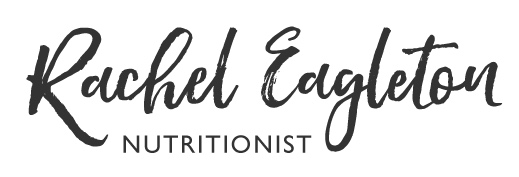Healthiest Supermarket Protein Balls
/Protein balls, bliss balls, energy balls – when you feel like a little snack to go with your morning cuppa a protein ball can hit the spot, and is a healthy choice - right? Well, I’ve had a look at the supermarket and these balls aren’t automatically a healthy choice – some are more like a dessert than a healthy bite to eat. I usually make my own balls as I like pottering around in the kitchen, however I also like being able to recommend something from the supermarket as an easy option for my clients. So my colleague Corinne from Goodness Me Nutrition and I decided to review the options available.
What’s in your ball?
Nuts and seeds contain heart healthy fats and most Australians don’t eat enough of them. So a bliss ball can be a handy way of including them in your diet. However you do need to be aware of portion size because when combined with other common bliss ball ingredients like dried fruit and coconut, you could have a calorie bomb on your hands. You also need to consider what is sticking the ball together, so have a scan of the ingredient list for high calorie ingredients like coconut oil and date syrup.
Watch portion sizes
Most commercial bliss balls exceed what I’d consider to be a healthy calorie count for a snack – your goal is about 600 kilojoules (roughly 150 calories) per snack. To be honest a lot of the balls we looked at I would call a fat and carb ball rather than a protein ball. As a hint if I see something called an “energy” ball (rather than a protein ball) that would be a hint to me that the ball is going to be higher in sugar (energy) than protein.
We rounded up the following contenders from our local Coles and Woolies. Some balls are sold individually and some are in packets with a recommended serving size. The serving size is set by the manufacturer and can often be unrealistically small. This is something to think about if you’re the kind of person likely to smash through a whole packet in one setting. The other issue we noticed is that the nutrient composition varied widely between flavours within the same brand. Here’s what we found:
Nutrient comparison of supermarket protein balls
So which one would we buy?
Rachel says…
At first glance I thought the Bar Counter balls would be best because they are relatively high protein and not too much of a calorie bomb. But the ingredient list is very long and contains a lot of sweeteners which might give some people a stomach ache. I actually think the bounce balls would be my preferred snack as the calories are not too high and there’s a decent amount of protein. Unless you have very high energy needs, I’d avoid the Tasti smooshed balls which look like they’d be very sweet and easy to overeat.
Mostly I make my own protein balls using nuts, dates and protein powder. I’ve come up with a couple of recipes that have 4g of protein for about 90 calories which is a suitable snack for me and most of my clients. Nutritionally they come out pretty close to half a bounce ball:
Rachel's Fig, Date and Cocoa Protein Balls
Rachel's Lemon Matcha Protein Balls
Corinne says…
For me it depends on why you’re eating that ball in the first place. What kind of snack are you looking for? If high protein is your goal to support muscle building then The Bar Counter has to be your go-to bliss ball. But if you just wanted a healthier-than-cake snack then be aware of the sugar and fat content and maybe go for the bar Counter Balls or Bounce Balls. The ones which are only 10g or 14g per ball are too small and you won’t be able to stop at one!
A key aspect of a healthy snack, for me, is its fibre content and a lot of these balls didn’t list their fibre content.
Making your own bliss balls is obviously superior as you can control the ingredients, add your favourite flavours and leave out additives. The price of the supermarket ones is so high too, a little bit of time making your own and freezing some for later is a worthwhile investment.
If you liked this comparison, you might like the Corinne and my review of our favourite yoghurts.
Do you need more ideas for snacks? Check out these suggestions here.
Rachel is a university qualified Clinical Nutritionist based in Balmain. She is also the busy working mum of two teenagers, so is practical and realistic with her advice . Rachel offers private consultations to improve your family's health and well-being. You can find her on Facebook and Instagram for more healthy tips and tricks.















